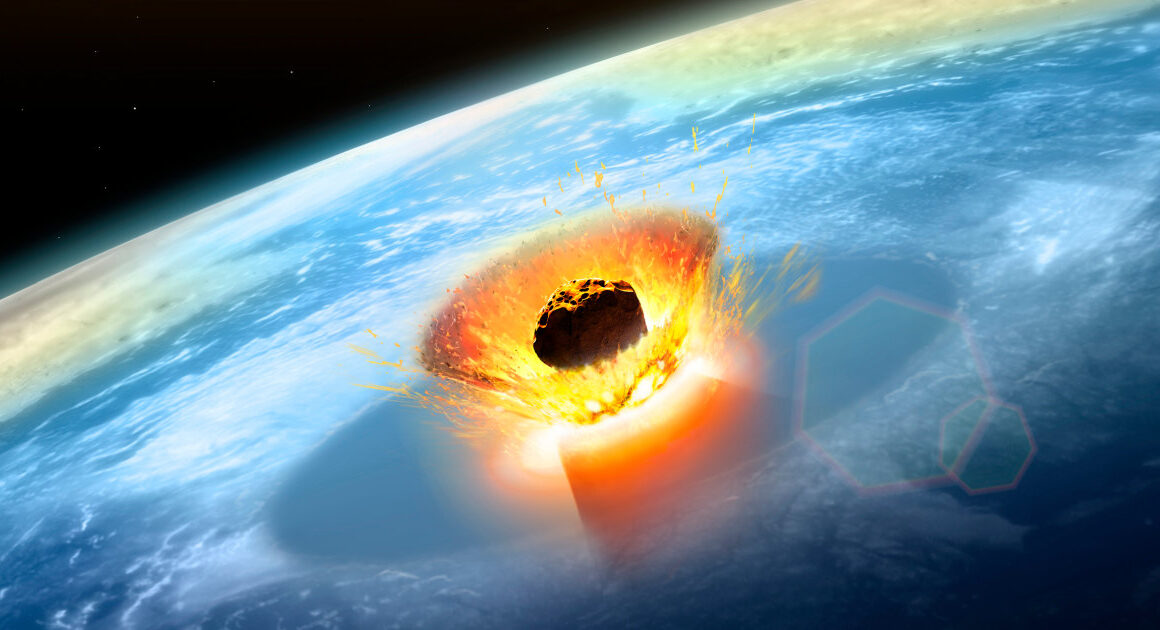The asteroid responsible for our last mass extinction 66 million years ago — wiping out the dinosaurs — originated from the far reaches of our solar system, unlike most asteroids that have struck Earth, a new study reveals.
Researchers in Europe and the U.S. have discovered that the dino-killing asteroid formed beyond the orbit of Jupiter in an extremely cold region and was rich in water and carbon, according to the findings published Thursday in the journal Science.
The researchers said that of all the cosmic bodies they have studied that struck Earth in the last 500 million years, only the one that exterminated the dinosaurs was a water-rich asteroid. Objects that originate closer to the sun are much drier, said François Tissot, a professor at the California Institute of Technology who co-wrote the paper.
“Every other impact was something with an object that was nearby the sun that happened to encounter here,” Tissot said. “So the one that killed the dinosaurs is really special in two ways — by what it did, and also by where it originated.”
This apocalyptic object is what created the Chicxulub crater on Mexico’s Yucatán Peninsula. Although researchers could not study a direct sample of the asteroid since it was destroyed, Tissot explained that dust from the impact fell back to Earth, allowing them to study the fine particles that were deposited in Earth’s layers.
Specifically, they studied the element ruthenium, which is extremely rare on Earth and could be definitively traced back to that asteroid.
The study confirmed previous findings that identified the asteroid as a carbonaceous-type, or C-type, asteroid, but refuted a 2021 hypothesis that the dinosaur killer was likely a comet.
“Comets come from very far from the sun, but they’re mostly made out of ice and dust,” Tissot said. “No comet has been measured for ruthenium so we don’t have a comparison point, but based on other indicators from other elements that the community over time has been able to measure, it seems very unlikely to be a comet.”
Tissot remarked that the study was a step forward in efforts to understand the evolution of our planet.
“If there are enough studies made across the history of the earth, then suddenly we have a record of all of Earth’s evolution,” he said, “And we can start to ask other questions.”
,









